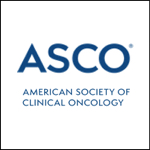 by Michele Atlan, BCCRF Board Director
by Michele Atlan, BCCRF Board Director
The annual meeting of the American Society of Clinical Oncology (ASCO) in Chicago is a huge event that brings together oncology professionals from all over the world. The latest news in state-of-the art cancer research, therapies, controversies and policies are all discussed over the course of one jam-packed week. I attended my first ASCO meeting at the beginning of June and was incredibly impressed and informed by the high level of quality and organization that I experienced. As a patient advocate, this year’s theme of Precision Medicine was particularly impactful. A model of evidence-based precision medicine in which women are educated about their options and their personal risk levels is exactly the caliber of information we need to help disseminate. President Bruce Johnson set the tone when he bravely spoke of his personal fight with prostate cancer. Merging the scientific & technological with a patient’s point of view achieves a thoughtful balance and reminds us that at the end of the day, beyond all the exciting & innovative research and its commercial application, our goal is to save human lives.
From the sessions I attended on the Breast Cancer Track, I came away with two general sub-themes within that of Precision Medicine: De-escalation of treatments and Combination Therapies to synergize effects and inhibit drug resistance. This new paradigm for the world of oncology, one in which we are simultaneously saying that “less is more” and “more is more precise” can be confusing but it perfectly reflects the above-mentioned humanistic foundation behind cancer research. As we are increasingly able to utilize genomic sequencing to study patients’ specific cancers, we can start to determine which patients may or may not respond to a particular drug as well as which ones are likely to encounter resistance or recurrence. This can help us fine-tune specific study populations to only those who have an active chance of responding, enabling a more accurate analysis of benefits and risks. And more importantly, it can help us prevent the toxicities and trauma of over-treatment.
Concerning the de-escalation of treatments, the long-awaited results of the TAILORx trial were presented during this year’s Plenary Session and have been subsequently splashed all over the medical and mainstream news. They indicate that within the most common type of breast cancer, ER+ HER2- NODE-, up to 70% of patients would not substantially benefit from the addition of systemic chemotherapy to their treatments, especially for post-menopausal women. Most patients who have had their tumor tissue tested through the Oncotype DX multigene assay and who have received intermediate risk scores under 25 can now be unequivocally reassured that hormone therapy alone will be their most viable and least punishing option for treatment. The excitement generated by these results speaks to our desire, as a community, to reduce the dangers and sometimes unbearable side effects of what can now be seen as over-treatment.
Changes to the AJCC breast cancer staging system will also be implemented in 2018. There will be an incorporation of HER2, estrogen- and progesterone-receptor statuses as well as genomic profiles when appropriate (e.g., Oncotype DX, Mammaprint) to the current T, N, M and grade factors. In quite a few cases, this will likely downgrade a breast cancer formerly classified as stage 2 to a stage 1 status which will inevitably lead to a de-escalation in standard of care treatments for these patients.
My goal as a patient advocate is to be exposed to the latest and most robust research analyses in order to bring the information back to the many communities of breast cancer patients in desperate need of support, care or resources. However, the disparities between which treatments and interventions individual populations have access to, especially in the lower-income countries of the world, is a disgrace. This is a crucial point to address and ASCO can certainly play an important role by increasingly shining a light on this problem.


